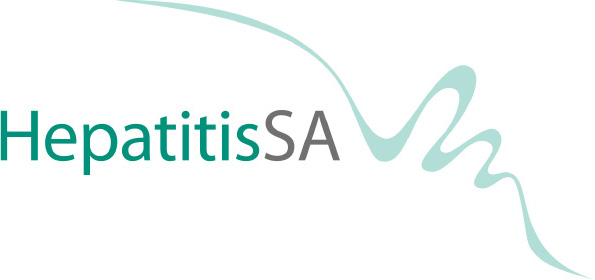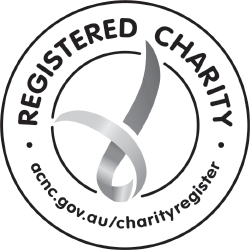The most effective protection against hepatitis B is vaccination.
Vaccination – who should get it?
In Australia, all babies born after May 2000 are vaccinated against hepatitis B. Those born before May 2000 are offered catch-up doses. The adolescent catch-up program is due to finish in 2013 in South Australia.
SA Health states that vaccination is free for the following people if they are not already immune:
- people who inject drugs
- men who have sex with men
- sexual contacts of someone with hepatitis B
- household contacts of someone with hepatitis B
- sex workers
- people living with hep C or other chronic liver disease
- those who have sustained a needle stick injury that is not subject to an Occupational Health Safety & Welfare (OHS&W) claim
- inmates of long-term correctional facilities
The hepatitis B vaccine is also recommended, but not free, for the following people:
- people with a clotting disorder
- people with HIV, impaired immunity or on haemodialysis
- people adopting children from overseas who have hepatitis B
- people living or working in facilities for people with intellectual disabilities
- healthcare workers, ambulance personnel, dentists, embalmers, tattooists or body-piercers
- police officers, members of the armed forces or emergency services workers
- prison workers
- funeral workers (or other workers who have regular contact with human tissue, blood or body fluids and/or used needles or syringes)
- people travelling to places where hepatitis B is endemic
- people who play contact sports (low risk)
To get vaccinated, contact your GP or local health centre.
Hepatitis B vaccination is given in three doses over six months. Most people will have some protection after the first two does but a third dose is needed for full protection. Protection is for life. A blood test taken four weeks after the final dose will tell you if the vaccination was successful.
If you started a course but did not complete it, SA Health recommends completing the course of three doses. There is no need to start the course again. For more information call SA Health Communicable Disease Control Branch on 1300 232 272.
Other ways of protecting against hepatitis B
SA Health recommends the following ways of protecting against hepatitis B if the vaccine didn’t work for you or if you have no immediate access to the vaccine:
- Practice safe sex (use a condom).
- Do not share injecting equipment including tourniquet, spoons and filters. Use new and sterile injecting equipment for each injection.
- Avoid tattooing and piercing where equipment is not sterilised.
- Avoid dental and cosmetic procedures where equipment is not sterilised.
- When undergoing cultural rituals where blood is involved, ensure all equipment is sterilised and no blood to bloodstream contact occurs.
- In sport, follow the Blood Rule.
- Avoid sharing toothbrushes, razors, needles, syringes, personal hygiene items and grooming aids or any object that may come into contact with blood or body fluids.
- Cover all cuts and open sores with a plaster or bandage.
- Follow standard precautions when handling blood spills:
- Wash hands after touching blood or body fluids.
- Wear disposable gloves if giving someone first aid, or cleaning up blood or body fluids.
- Wipe up any blood spills and then clean the area with household bleach.
- Throw away personal items such as tissues, menstrual pads, tampons and bandages in a sealed plastic bag.
If you do get exposed to the hepatitis B virus then you will need to be given hepatitis B Immuno Globulin (see Post exposure prophylaxis below) by your doctor as soon as possible.
Post exposure prophylaxis - PEP for hepatitis B
What is hepatitis B PEP?
Post exposure prophylaxis (PEP) is a treatment that can be used after an exposure to the hepatitis B virus through unsafe sex, sharing of drug injecting equipment or needle stick injury. PEP is given to reduce the risk of infection with the hepatitis B virus.
Hepatitis B immunoglobulin (HBIG) is used as a PEP to reduce the risk of transmission after an exposure to hepatitis B. A single dose of HBIG is given as well as three doses of hepatitis B vaccine over six months.
PEP is available following a significant exposure to blood, sexual fluids or blood contaminated secretions for people with no immunity to hepatitis B.
What to do
- If you think you have been exposed to the hepatitis B virus contact your GP, sexual health clinic or local public hospital to have the risk assessed and to have a blood test to check your current hepatitis B status.
- If you are susceptible to the hepatitis B virus the health worker will make a decision regarding the use of PEP.
- The quicker you seek advice from a medical professional the better.
Timing of hepatitis B PEP
- Sharing injecting equipment or needle stick – within 72 hours.
- Unprotected sexual contact – within 14 days.
What happens when you visit a medical centre for assessment?
At the first visit a blood test will be done, this will check to see if:
- you have immunity,
- have had a previous infection and cleared it,
- have the virus currently, or
- have never had it and don’t have immunity.
Unfortunately there is no test which will show whether an exposure in the past couple of days has lead to an infection.
If you have a current immunity, either through past vaccination or previously resolved infection, nothing further will be done, and there is no risk. You have lifelong protection from hepatitis B.
If there is no immunity and no current infection, there will be further assessment as to the risk of the exposure. If it is deemed to be a significant high risk, then the PEP will be provided. If the risk is deemed low, a course of immunisations will be started.
If the blood test shows current chronic hepatitis B, you will be referred to a specialist for further tests and regular monitoring.
Harm Reduction and hepatitis B
To reduce the risk of contracting the hepatitis B virus always practice safe sex by using a condom (male or female), water-based lubricant, hygienic use of sex toys, always use your own sterile injecting equipment including needles, syringes, water, filters and tourniquets. Never share household items such as razors and toothbrushes which could have come in to contact with blood.
There is also a very safe and effective vaccine for hepatitis B, for more information on the hepatitis B vaccine and to see if you are eligible for a free vaccine call 1300 232 272 or visit www.sahealth.sa.gov.au/freehepbvaccine.
Further information and support
Call the Hepatitis SA Helpline on 1800 437 222 Monday - Friday 9am - 5pm.










